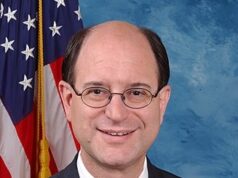New ICC framework sidelines local government participation in energy code development
NBI strongly opposes changes, which make action on climate “non-mandatory”
March 4, 2021 – RealEstateRama – The International Code Council (ICC) announced today a new framework that changes the essential nature of the International Energy Conservation Code (IECC) development process from a model energy code to a standard. The change, described in vague terms in the ICC material, is impactful because it reduces the opportunity for cities and states to shape future versions of the IECC, even though they must subsequently adopt and implement it.
New Buildings Institute (NBI) opposes this outcome, which NBI staff testified against during an ICC Board of Directors meeting on this proposed change in January. NBI, a national nonprofit organization, has been working with jurisdictions and partners to support development and advancement of model energy codes for over 20 years, including participating in the IECC development process.
To update the 2021 IECC, thousands of government representatives voted loud and clear in favor of a 10% efficiency improvement that will reduce energy use and carbon emissions in new construction projects. These voters answered the call of the ICC for increased participation in the development process and took seriously their role as representatives of their jurisdiction’s goals and interests around climate change. Now, government officials will lose their vote, and instead appointed committees will make the determination of efficiency stringency for new homes and commercial buildings with no directive toward improvements needed to address the current climate crisis. Buildings account for 40% of the carbon emissions in the United States. The nation cannot address climate change without addressing buildings.
“The published changes to the code’s intent fundamentally stall progress on advancing efficiency and building decarbonization and fail to meet the need of the moment as the impacts from climate change bear down upon us,” said Kim Cheslak, NBI Director of Codes. “In addition to reducing governmental member involvement, the changes adopted by ICC will ensure that measures directly targeting greenhouse gas (GHG) emissions and the achievement of zero energy buildings in the IECC will only be voluntary, and subject to the approval of an unidentified Energy and Carbon Advisory Committee and the ICC Board of Directors. We have seen the make-up of committees have a detrimental impact all too often in previous code cycles when industry interests fight efficiency improvements from inside black-box processes,” Cheslak said.
While some may read the ICC press release today as a win for climate and efficiency, NBI believes advocates should be concerned about who will serve on the development committees and the Energy and Carbon Advisory Committee. If the ICC is serious about creating a standard that works for cities and states, it will appoint members that will deliver on the near-term necessity of zero energy and carbon neutrality. In the meantime, NBI will work with partners to push for ongoing advancement of energy codes that are on a path to zero by 2030, building on our past efforts related to stretch code and advanced building policy development that are currently being implemented by jurisdictions around the country. In fact, NBI along with the Natural Resources Defense Council recently released a new Building Decarbonization Code that acts as an overlay to the 2021 IECC to achieve carbon neutral performance in residential and commercial new construction.
“We are confident that we can deliver alternatives that will assist the rapidly growing number of states and cities working towards carbon neutral building performance,” said Cheslak. “The new Building Decarbonization Code is the first step. We will continue to develop solutions that move at the pace required to achieve zero carbon by 2030.”
###
ABOUT NEW BUILDINGS INSTITUTE
New Buildings Institute (NBI) is a nonprofit organization driving better energy performance in buildings to make them better for people and the environment. We work collaboratively with industry market players—governments, utilities, energy efficiency advocates, and building professionals—to promote advanced design practices, innovative technologies, public policies, and programs that improve energy efficiency. Learn more at www.newbuildings.org
Contact: Stacey Hobart, NBI
503-407-2148
















